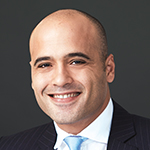Emerging markets

|
Written By: Matthew Craig |
Matthew Craig looks at the opportunities for long-term investors presented by emerging markets and discusses various approaches for local government pension funds
Emerging markets represent a fascinating opportunity set for long-term investors, such as local government pension funds, and others. They offer a different balance of risk and reward to developed markets, based on potentially higher growth rates, attractive demographics and other long-term trends, as countries and peoples around the world strive to raise standards economically, socially and in terms of governance. But emerging markets can also be risky and volatile, and underlying economic growth, for various reasons does not necessarily mean steadily rising asset prices for investors. So investors need to take care, and this need is now heightened following Donald Trump’s election as US president. He has threatened a trade war with China, which is a key emerging market. China and other emerging markets have benefited greatly from globalisation over the last 30 years, so a return to nationalist-populist governments in the USA and elsewhere could be damaging for emerging markets.
Investors and experts have differing views on the likely impact of Trump. Andrew Cormie, portfolio manager at Eastspring Investments, commented: “Predicting the future is a futile exercise as academic research tells us. Predicting the future and influence of any one man is even more difficult to predict.” Cormie added: “We do see the potential for the Trump administration’s inflationary fiscal policy and a stronger US dollar, supporting demand for non-US goods, which would potentially counter the prospect of protectionist policy. We see improving growth in the US, hence rising rates, indicating stronger demand for emerging market goods.” Leyland Otter, chief investment officer at Merseyside Pension Fund, agreed that it is early to draw firm conclusions, but said: “The signs are that there is going to be a positive impact on reflation, or the start of a cycle of rising interest rates. My view is that globalism is here to stay; the world is so inter-connected now in terms of trade flows and with technology, transport and other linkages. In fact, at some point China will overtake America as the largest economy.”
Others are more convinced that the global economy, and emerging markets, face an inflection point with Trump, which could lead to reduced global trade volumes, higher geopolitical risk and the creation of winners and losers in emerging markets. David Dowsett, co-head of emerging market debt at BlueBay Asset Management, expressed this view recently. “Emerging markets with a large domestic economy and a viable consumption base look better placed,” he said. Dowsett predicted greater market divergence, saying a reduction in quantitative easing will reduce the amount of capital currently suppressing volatility. “Where to invest will be more important than when to invest,” he commented, foreseeing opportunities for investors arising from the greater uncertainty ahead. As a fixed income manager, Dowsett tipped emerging market corporate high yield as being attractive on a risk-adjusted basis. It is important to note that the emerging markets include both equities and debt assets. Indeed, it is now also possible to find emerging market private equity and infrastructure, while niche assets such as shipping and timber and farmland can have a strong structural bias towards emerging markets.
Strathclyde Pension Fund invests in emerging markets and it has recently made an emerging market debt allocation of 1.5% of assets under management to Ashmore, an emerging market specialist, to add to its existing emerging market equities position. Richard McIndoe, director of the fund, commented: “We have specific emerging markets allocations, and emerging markets are also part of a larger global equities allocation. The demographic and economic arguments for emerging markets are long-term ones, so we have a dedicated, long-term emerging markets allocation to a specialist manger. We also include emerging markets in global mandates where managers can take a more tactical view.”
Strathclyde’s move into emerging market debt is part of an allocation to short-term, enhanced yield fixed income assets. In a paper on the allocation, the fund stated: “Emerging market debt yield spreads over developed market bonds have widened in recent years, largely reflecting the reduction in yields in developed markets resulting from widespread quantitative easing. Whilst a number of the emerging debt markets warrant higher yields (not least due to the currency volatility associated with local emerging market debt), current yield levels potentially present a relatively attractive entry point to these markets at a time when core developed markets still offer little value.”
Other investors have emerging market exposure mainly through their equity allocation. Merseyside’s Otter said: “We invest in emerging market equities, but we haven’t invested directly in emerging market debt yet. For emerging market equities, we use three external asset managers; Amundi, M&G and BlackRock. They have similar active management mandates, which are benchmarked to MSCI. Basically, we are looking for stock picking alpha, as we feel that in emerging markets, managers do have opportunities to exploit certain inefficiencies.”
Otter added that all three mandates are actively managed, so the managers have discretion over which emerging market countries they allocate to. “Emerging markets now make up around 6% of our assets under management, so the allocation has increased slightly since our last triennial valuation. Emerging markets can be volatile, as we have seen in recent times following events such as the ‘taper tantrum’, but as a long-term investor we aim to exploit the opportunities they offer and to ride out short-term activity.”
Given the potential volatility in emerging markets, many investors want to use an active approach. Stock selection and market valuations are keys here, and being contrarian can sometimes pay off. Focusing on prospects for individual emerging markets, Eastspring’s Comrie commented: “We see clusters of attractively valued stocks in unloved markets of Korea, China and Russia.” He added: “Over the last few years investors have had a defensive approach to investing in emerging markets and as such they have looked for and overpaid for stocks in markets with strong growth prospects, such as the Philippines and India, or higher quality and/or defensive characteristics, for example, South Africa and Chile. As a result, the stocks within these markets are often overpriced and we avoid them.” Comrie added that Eastspring outperformed in 2016 and that this was largely driven by good performance from the unloved markets of Korea, Russia and Brazil.
He went on to say that Mexico could now become attractive, following the aggressive election rhetoric from Trump on the NAFTA agreement and on building a wall between the USA and Mexico. “Brazil has now become a lot more popular, more expensive, on the back of the rally in 2016 and as such we now find fewer attractively valued names. Mexican equities and the peso have both been aggressively sold off. We are now looking at some attractively valued names in Mexico that have been sold off too much relative to our view of their sustainable earnings.” Overall, Comrie added that based on historic valuation levels, emerging market equities look cheap now. “History tells us that the price you pay is the best indicator to follow when investing in emerging markets. Relative to developed markets, emerging markets now offer great value for a medium-term investor.”
Within the local authority pension fund sector, the main focus of activity right now is asset pooling, as the eight proposed asset pools start to implement their plans with a tight deadline of April 1, 2018 approaching. For the London CIV, the pooling arrangement for London borough pension funds, investment oversight director Julian Pendock said emerging markets has been included as one of the active global equity strategies in its procurement process, adding that London funds are still keen to engage with emerging markets. Looking at the prospects for emerging markets, Pendock said more attention needs to be paid to the impact of monetary policy on the global monetary system and global liquidity. As a result, he said emerging markets should now be seen as a risk diversifier: “This is in large part because of the superior risk premium in certain emerging market asset classes. Secondly, the risk premium for emerging market debt is now arguably better than for emerging market equities, which is unusual.”
In summary, emerging markets will only grow in importance for long-term investors, but there are not necessarily quick and easy answers on how to invest. One vital question is how allocations will be made and, in the short term at least, emerging markets face a host of questions from the likes of Trump, geopolitical risk, demographics, global liquidity flows and all of the other factors that make investing so challenging.
More Related Content...
|
|
|





